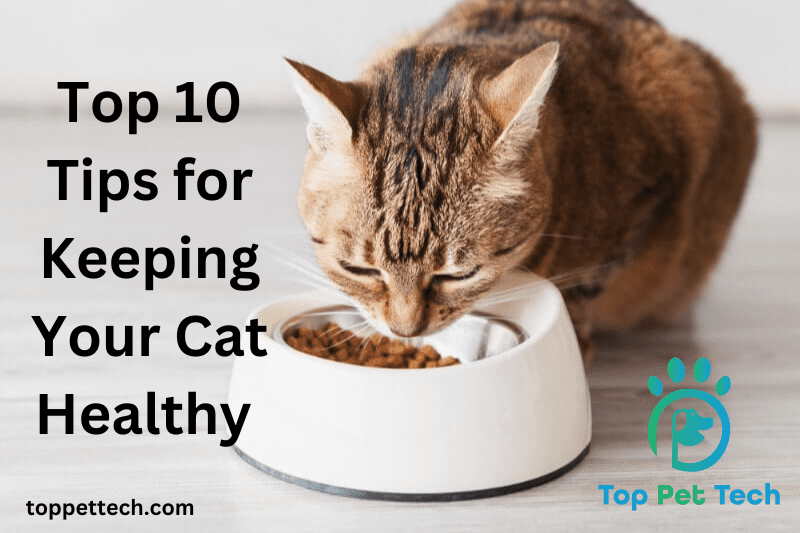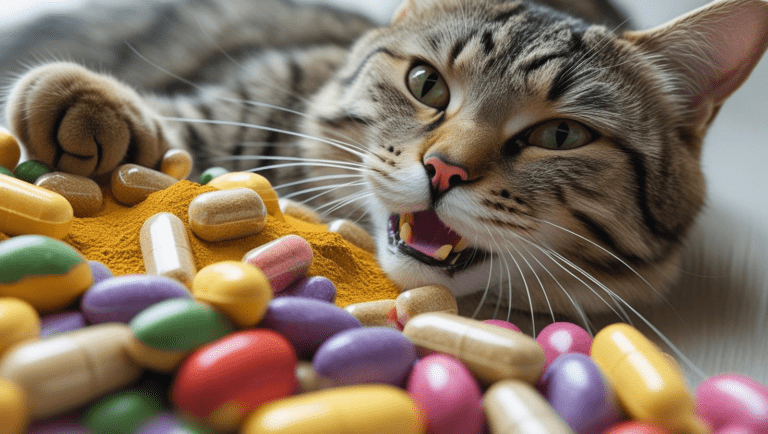Ensuring your cat’s optimal health involves more than just regular vet visits; it requires a comprehensive approach that includes proper nutrition, regular exercise, mental stimulation, and preventive care. A healthy cat is a happy cat, and by taking proactive steps, you can enhance their quality of life and longevity. From understanding their dietary needs to recognizing the signs of potential health issues, being an informed and attentive cat owner is key. In this guide, we’ll explore essential tips and practices that will help you maintain your feline friend’s health and well-being, ensuring they lead a vibrant and active life. Whether you’re a seasoned cat owner or a new pet parent, these insights will empower you to make the best decisions for your cat’s health.
Proper Nutrition
Feeding your cat a balanced diet that meets their nutritional needs is essential for their overall health. Here are some important tips:
Balanced Diet
Provide your cat with high-quality, cat-specific food that contains all the essential nutrients. Cats are obligate carnivores, meaning they need a diet high in animal protein. Avoid feeding them dog food or human food, as these do not meet their nutritional requirements and can lead to health issues.
Avoid Human Food
Many human foods can be harmful to cats. Foods like chocolate, onions, garlic, and grapes are toxic to them. Stick to cat-specific food to prevent any health issues. If you’re unsure about what to feed your cat, consult your veterinarian for advice.
Fresh Water
Always have fresh water available for your cat. Staying hydrated is crucial for their health. Cats are not always good at drinking water, so you might consider using a cat water fountain to encourage them to drink more.
Regular Veterinary Check-ups
Regular visits to the vet are crucial for catching any health issues early on and ensuring your cat’s well-being. Here are some tips for maintaining regular veterinary care:
Schedule Annual Exams
Regular check-ups with the vet are essential. During these visits, the vet can perform a physical exam, check for any health issues, and update vaccinations. Annual exams help catch potential problems early, making treatment more effective.
Stay Updated on Vaccinations
Keeping your cat’s vaccinations up to date is important for preventing diseases like rabies, feline distemper, and feline leukemia. Your vet will provide a vaccination schedule based on your cat’s age, health, and lifestyle.
Monitor behaviour and Appearance
Pay attention to any changes in your cat’s behavior or appearance, as these could be signs of underlying health issues. If you notice changes in appetite, weight, litter box habits, or energy levels, contact your vet for advice.

Enriching Environment
Creating a stimulating environment is important for your cat’s mental and physical health. Here are some ways to enrich your cat’s environment:
Provide Toys for Mental Stimulation
Cats need mental stimulation to stay happy and healthy. Provide a variety of toys, including interactive toys, puzzle feeders, and toys that mimic prey. Rotate toys regularly to keep your cat interested.
Create Spaces for Exercise
Regular exercise is important for maintaining a healthy weight and staying active. Create spaces for your cat to play and move around. This can include climbing trees, tunnels, and play areas. Encourage your cat to exercise by engaging in play sessions with them.
Offer scrambling Posts and Climbing Areas
Scratching posts and climbing areas help cats fulfill their natural instincts and keep their muscles strong. Provide vertical and horizontal scratching surfaces and place them in areas where your cat likes to scratch. Climbing areas, like cat trees, provide opportunities for exercise and exploration.
Grooming and Hygiene
Regular grooming and hygiene practices are essential for your cat’s health and well-being. Here are some grooming tips:
Brush Your Cat Regularly
Regular grooming helps prevent matting, reduces shedding, and promotes healthy skin and coat. Brush your cat according to their coat type. Short-haired cats may only need weekly brushing, while long-haired cats may need daily brushing.
Trim Nails to Prevent Scratching
Keeping your cat’s nails trimmed helps prevent damage to furniture and accidental scratches. Trim your cat’s nails every few weeks using cat nail clippers. Be careful not to cut too close to the quick, which can cause pain and bleeding.
Clean Ears and Eyes as Needed
Regularly cleaning your cat’s ears and eyes can help prevent infections and keep them comfortable. Use a damp cotton ball to gently clean around the ears and eyes. If you notice any discharge, redness, or swelling, contact your vet.
Preventive Care
Taking preventive measures can help protect your cat from health issues and ensure their well-being. Here are some preventive care tips:
Use Flea and Tick Prevention
Fleas and ticks can transmit diseases to your cat. Use preventive measures, such as flea and tick treatments, to keep them safe. Your vet can recommend the best products for your cat’s needs.
Maintain a Clean Litter Box
A clean litter box is essential for your cat’s health and well-being. Scoop the litter box daily and change the litter regularly. This helps prevent urinary tract infections and other issues.
Keep Your Cat Indoors to Reduce Risks
Keeping your cat indoors can protect them from dangers like traffic, predators, and diseases. Indoor cats generally live longer and healthier lives than outdoor cats. If you want to give your cat outdoor time, consider using a catio or supervised outdoor access.
Conclusion
Ensuring your cat’s health requires a combination of proper nutrition, regular vet check-ups, a stimulating environment, good grooming habits, and preventive care measures. By following these essential tips, you can help your furry friend live a long and healthy life. Proper care not only enhances their quality of life but also strengthens the bond between you and your feline companion. Whether you’re a new pet parent or have years of experience, these practices will empower you to make the best decisions for your cat’s health and well-being. A healthy, happy cat will reward you with years of companionship and love, making every effort worth it. Happy cat parenting






